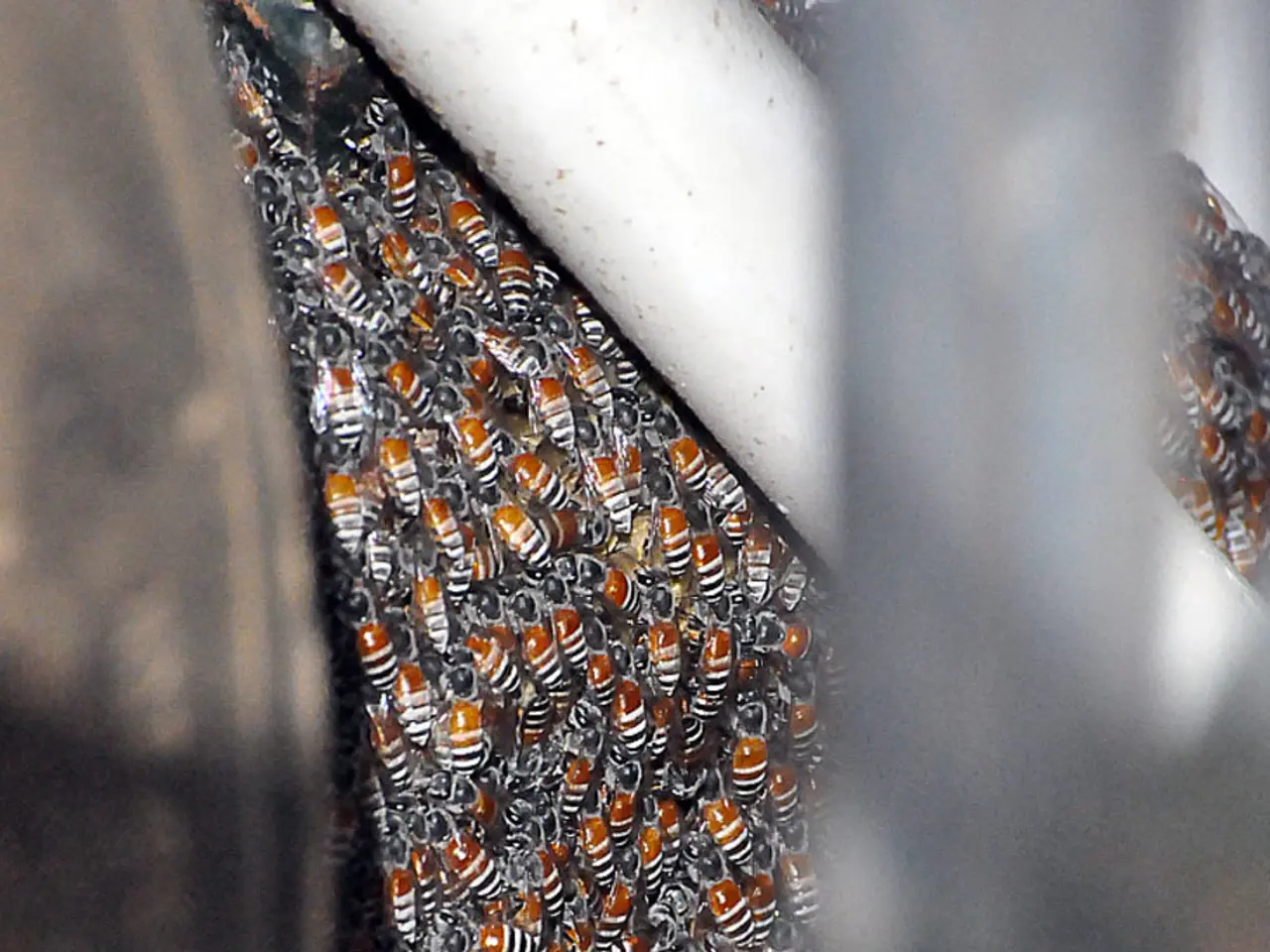Insects 'Sleep Rebound' Discovered: Honeybees, Others Need Rest Too
Scientists have discovered that insects, like humans, experience a phenomenon called 'sleep rebound'. This means they need more sleep after being deprived of it. Biologist Meg Crofoot, who studied honeybees, found that these insects, along with others like paper wasps and fruit flies, indeed doze off, displaying signs similar to mammalian sleep.
Honeybees, for instance, exhibit signs of sleep by remaining still, drooping in the direction of gravity, and having more relaxed muscles. Crofoot's research revealed that sleep deprivation in these bees impairs their communication skills. They struggle to inform their colony about food sources and potential nest sites through their 'waggle dances'.
Other insects, such as cockroaches and praying mantises, also enter a state of rest, although the nature of their sleep can vary. Butterflies, on the other hand, enter a state of dormancy called torpor, but it's unclear if they experience true sleep.
The study of insect sleep, though challenging, is yielding fascinating insights. It's now clear that many insects do sleep, with some exhibiting signs remarkably similar to those seen in mammals. However, more research is needed to fully understand the role and purpose of sleep in the insect world.
Read also:
- Premios Senior Living Las Arcadias Honours Champions of Elderly Rights
- Rise in Flu Cases: Timing and Reasons Explored by Medical Experts for Flu Vaccination
- Nursing Infants: Advantages, Factors to Ponder, Guidelines, Essential Gear
- Anticipated Increase in Uninsured Residents to Pose Challenge for Local Healthcare Infrastructure






